The use of solar renewable energy has increased dramatically as the globe struggles with the urgent problem of climate change. Solar energy has become the most popular among them, with solar panels being extensively used by both homes and businesses. However, searching for a reliable solar provider might not always be super easy.
The wealth of information about solar installers doesn’t always simplify the decision-making process. With numerous technicalities involved, much of the information provided by installers themselves is often unverified in user reviews, and pricing policies can be misleading. SolarPowerSystems has developed a solar installer search tool that generates a list of optimal installers in your area. This tool uses the largest installer review dataset, which our professionals constantly update and verify. Simply answer a few questions, and our competent team member will assist you free of charge!
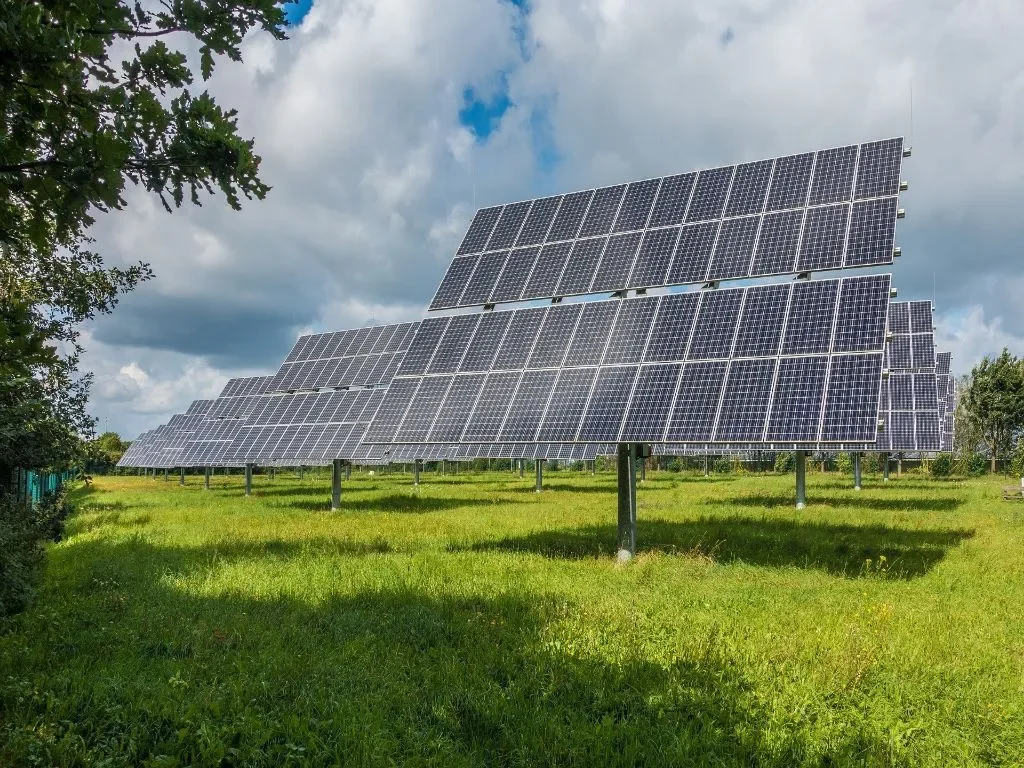
Source: University of Minnesota
The International Energy Agency (IEA) predicts that solar energy will surpass previous deployment records every year starting in 2022. Solar photovoltaic (PV) output surged by an unprecedented 270 TWh (an increase of 26%) in 2022, nearing 1,300 TWh.
The technology for turning sunlight into electricity – solar panels – plays an important role in the transition to a more sustainable energy future. They provide a clean, environmentally friendly energy source that reduces greenhouse gas emissions, which are the main cause of global warming. Grid decarbonization will be inadequate to achieve the 80% reduction in emissions by 2050, primarily attributable to the expanding housing stock and ongoing utilization of fossil fuels (natural gas, propane, and fuel oil) within residential dwellings, according to the Proceedings of the National Academy of Sciences (PNAS).
Like every other technology, however, solar panels for homes have disadvantages. The manufacturing process may use a lot of energy and potentially dangerous materials, and getting rid of used panels is still a problem.
This article looks at both the solar panel’s pros and cons in an attempt to provide a fair analysis of their impact on the environment. We will examine the need for solar panels, their present appeal, and their effects on the environment as we get into the details.
Impact of a Solar Panel on the Environment
The widespread integration of solar energy into power systems has resulted in notable environmental repercussions. As of now, the implementation of solar panels for homes has proven to be a successful strategy in mitigating carbon emissions. The solar thermal energy yield for the 2021 year was recorded at 425 TWh, representing carbon dioxide and hydrocarbon savings of 147.5 million tons and 45.7 million tons, respectively.
The main aspects of the impact of solar energy on the environment are listed below:
- Solar panels convert the energy of the sun, an infinite and renewable resource, into electrical power. Solar panels produce environmentally friendly energy as opposed to fossil fuels, the combustion of which emits detrimental greenhouse gases. Decreasing our dependence on conventional energy sources that emit pollutants contributes to the mitigation of climate change.
- Solar energy is also an environmentally friendly remedy for energy scarcity. Its potential for generation transcends geographical limitations, rendering it a pragmatic selection for remote or underdeveloped regions. The democratization of energy has the potential to foster economic growth, alleviate energy destitution, and elevate living standards.
- Despite this, the production of solar panels for homes does involve some environmental concerns. Energy is required extensively in the manufacturing process of photovoltaic cells, which also entails the handling of perilous substances that, if not managed properly, can contribute to environmental contamination. An additional growing concern pertains to the recycling and proper disposal of solar panels for homes once they have reached the end of their useful lives. At present, the recycling rate of solar panels is quite low, as the vast majority are disposed of in landfills.
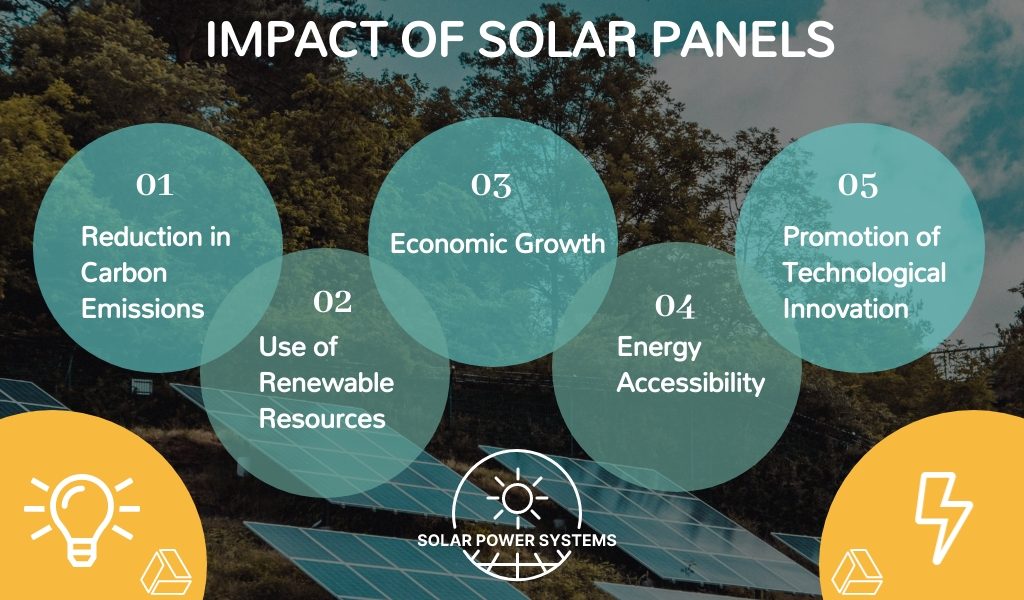
Although solar panels for homes do have certain environmental disadvantages, their advantages much surpass the drawbacks. They contribute to the reduction of carbon emissions and the fight against climate change by providing a renewable, pure energy source. Nevertheless, in order to guarantee the long-term viability of this energy source, it is imperative to confront the environmental concerns that arise during its manufacturing and disposal.
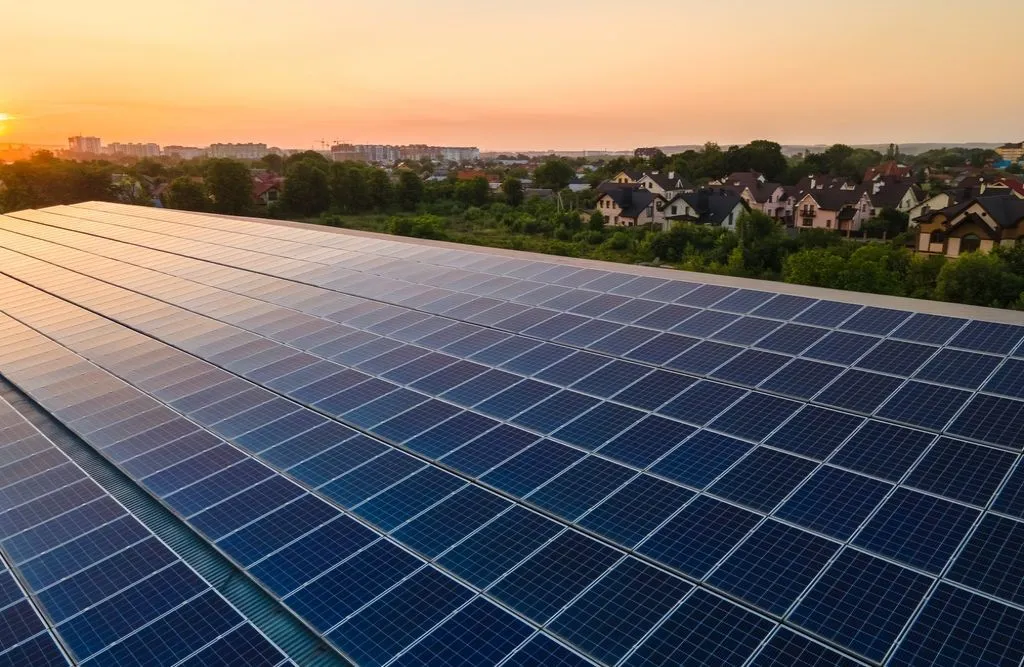
How much is your electricity bill per month?
Help us understand what you`re currently spending
The Pros of Solar Panel Adoption
Cost savings, reduced environmental impact, increased energy independence, and job creation are just a few of the benefits that the pros of solar panels can provide. Further supported by the benefit of solar panels of increased property values, solar energy makes a strong case. In the ongoing pursuit of sustainable and renewable energy alternatives, solar panels for homes emerge as a particularly auspicious resolution. Let’s take a look at the main benefits of solar energy to the environment:
- Cost: one notable benefit associated with solar panels for homes is their capacity to potentially decrease energy expenses. Over the lifespan of a solar panel system, households can potentially save between $10,000 and $30,000. Given the average lifespan of 20 to 30 years, this signifies considerable cost reductions.
- Environmental sustainability: solar panels diminish our dependence on fossil fuels by harnessing pure, renewable energy from the sun. Solar energy production, as opposed to conventional energy sources, does not produce any pollution. Installing solar panels for homes can reduce carbon dioxide emissions; their carbon footprint is twenty times smaller than that of coal-fired electricity.
- Energy independence: the implementation of solar power systems enhances the energy independence of a country. Homes that produce their own electricity thereby diminish the strain on the power grid. This may be especially advantageous during periods of elevated energy usage or grid unreliability.
- Job creation: the photovoltaic industry contributes significantly to the creation of jobs. According to Solar Business Hub, between 2014 and 2019, employment in the photovoltaic industry increased by 44%, which is five times the rate of employment growth in the U.S. economy as a whole.
- Property value appreciation: residences that are outfitted with solar energy systems command greater property values. The selling price of a solar-powered residence is typically 3.74% or higher than comparable properties without solar.
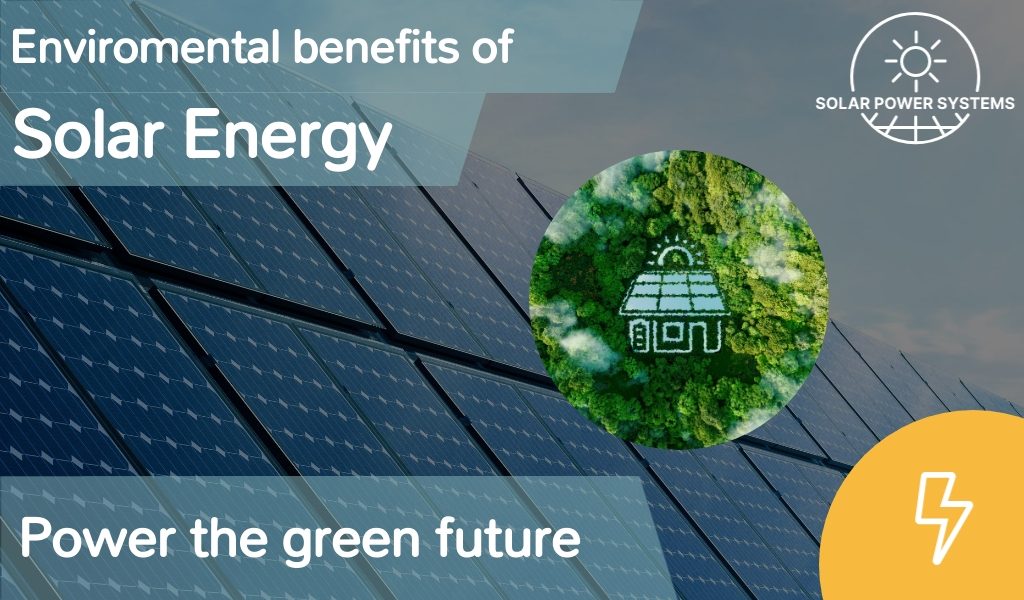
The Cons of Solar Panel Adoption
Although the implementation of solar panels offers considerable advantages, it is equally imperative to contemplate the possible disadvantages. Here are some of solar energy’s most significant drawbacks:
- High cost to install solar panels: solar panels entail a substantial initial investment. Depending on location and size, the average cost of installing a solar panel system can range from $15,000 to $20,000. For many enterprises and homeowners, this initially exorbitant price may be unaffordable.
- Weather dependence: in order to produce electrical energy, solar panels necessitate exposure to sunlight. This results in a substantial reduction in the operational efficiency of solar panels for homes on cloudy, wet days, as well as at night. This weather dependence can be problematic, particularly in regions with fewer sunny days.
- Energy storage is pricey: in order to mitigate the challenge posed by weather variability, solar energy must be stored in sizable batteries to be utilized during periods of low solar activity. Although they can be quite expensive, these energy storage systems contribute to the initial investment.
- Space demands: solar panels necessitate a substantial amount of space in order to produce a substantial quantity of energy. This can be a significant disadvantage for apartment or house owners with modest roofs.
- Emissions into the environment: although solar panels are classified as a renewable energy source, their manufacturing procedure necessitates the utilization of hazardous substances and rare minerals, thereby potentially causing environmental harm. A further growing concern is the proper disposal of obsolete solar panels for homes, which can result in substantial amounts of refuse.
Although these cons of solar panels may appear significant, it is crucial to acknowledge that ongoing technological progress and government incentives are striving to alleviate them. However, one must be cognizant of these potential drawbacks before deciding whether to adopt solar panels for homes.
What Environmental Impact Does the Manufacturing of Solar Panels Have?
Significantly contributing to the transition to renewable energy is the production of solar panels for homes. It is not, nevertheless, devoid of environmental repercussions. Multiple stages of the manufacturing procedure have the potential to cause environmental damage:
Production of solar panels requires a substantial amount of energy. Extracting and processing basic materials, such as glass, metal, and silicon, requires a substantial quantity of energy. Solar panels have an energy repayment time (EPBT) ranging from one to four years, according to the National Renewable Energy Laboratory. The EPBT is the amount of time required to generate energy equivalent to that which was used to produce the panel.
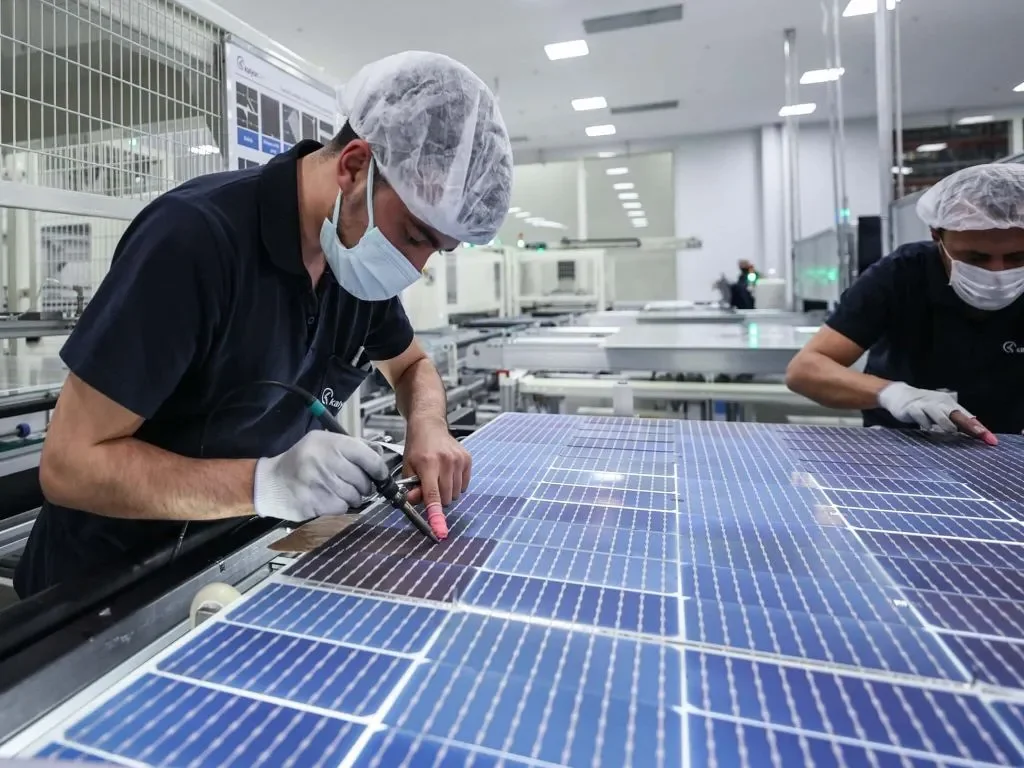
Source: EcoWatch
- Another factor that contributes to greenhouse gas emissions is the production process. Solar panel production is estimated to leave 50 grams of CO2 per kilowatt-hour, according to the National Renewable Energy Laboratory. This is considerably less than the carbon solar panel carbon footprint left by fossil fuels but still noteworthy.
- Hazardous substances such as nitrogen trifluoride and sulfur hexafluoride, which are powerful greenhouse gases employed in the cleansing procedure of solar panel components, are utilized in the manufacturing process. These gases may escape into the atmosphere if not managed appropriately.
- Hydrogen purification and surface cleansing of semiconductors are two processes that contribute significantly to the substantial water consumption required for solar panel manufacturing. In regions where water is limited, this can place a strain on local water resources.
- The generation of electronic refuse occurs when solar panels undergo the process of decommissioning, which typically occurs long period. Contemporary recycling initiatives are ill-equipped to manage the anticipated surge in solar panel waste despite the fact that numerous components are recyclable.
It is crucial to bear in mind the considerable advantages of solar panels for homes, notwithstanding these potential environmental risks. Once implemented, they furnish a sustainable energy source, substantially diminish dependence on fossil fuels, and reduce greenhouse gas emissions.
Additionally, in an effort to lessen its environmental impact, the solar industry is consistently enhancing its procedures. Efficient recycling techniques are being devised to manage the waste generated from solar panels, while advancements in manufacturing processes are declining energy consumption.
How Significantly Is Solar Energy Superior To Conventional Energy Sources
Solar energy is distinguished from conventional energy sources by virtue of its sustainability, cleanliness, and inexhaustibility. Solar energy does not release detrimental greenhouse gases that are agents of global warming, in contrast to fossil fuels like coal and natural gas. Solar panels can, in fact, reduce carbon emissions by as much as 80% when compared to fossil fuels, according to a study by UC Berkeley.
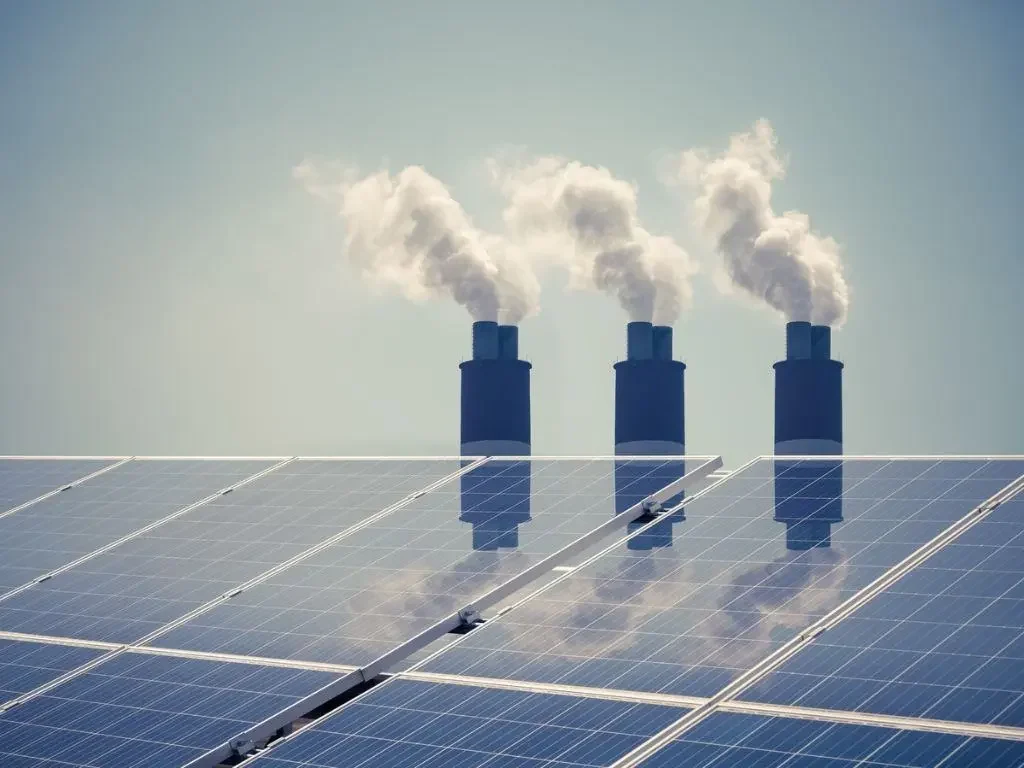
Source: Coldwell Solar
Solar energy is presently on par with conventional energy sources in terms of accessibility and affordability. Solar Energy Industries Association data indicates that the price of solar panels has decreased by 99 per cent over the last ten years. Undoubtedly, this renders solar energy a financially feasible and ecologically sustainable alternative.
Sunlight is also readily available and abundant virtually everywhere. Science Direct asserts that the annual energy consumption of the planet is 10,000 times less than the solar output. Solar energy is a dependable and renewable source of power that can satisfy the growing energy demands of our planet without depleting its resources.
Environmentally, economically, readily available, and efficiently, solar energy surpasses conventional energy sources. We can foster a more environmentally friendly and sustainable future by shifting to solar energy. So, if you are in search of the ideal solar provider in your area, SolarPowerSystems can help you up by providing personalized solar quotes from our industry experts.
Conclusion
Fundamentally, solar panels for homes offer a feasible resolution to ecological issues associated with energy usage. Positive indications surround their capacity to decrease greenhouse gas emissions and reduce reliance on fossil fuels. Concerns such as hazardous waste disposal and energy-intensive production are, nevertheless, drawbacks of solar panels. The advantages of solar energy, nevertheless, significantly surpass its disadvantages. Solar panels are advantageous due to their long-term cost reductions, positive environmental impact, and ability to generate employment despite the substantial initial investment required. Understanding the advantages and disadvantages of solar panels for homes is crucial as we work towards a more sustainable future. Environmental issues associated with the production and disposal of this energy source must be addressed in order to ensure its longevity.


